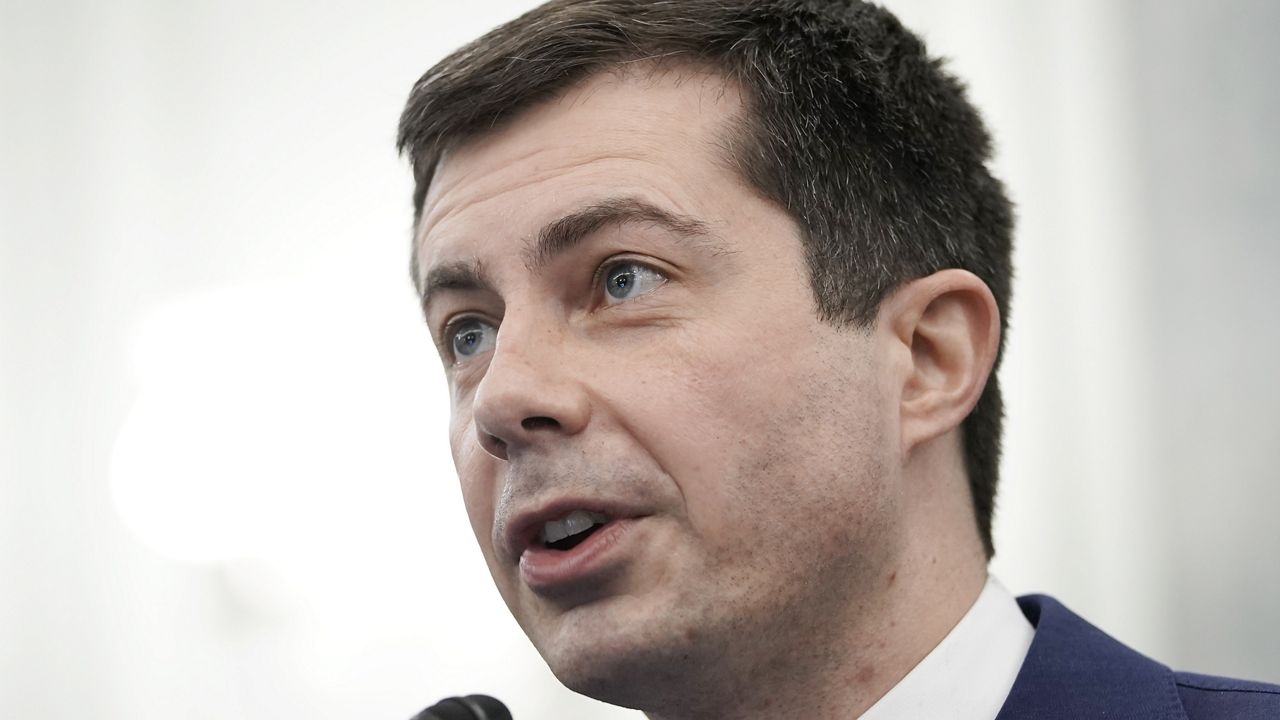When the former Mayor of South Bend, Indiana, headed to Capitol Hill Thursday, he brought with him a message of optimism and possibility that his one-time rival for the presidency, and, potentially, future boss, often likes to tout in speeches.
On the first full day of Biden's presidency, one of his staunchest supporters went to bat for one of the president's biggest legislative priorities: rebuilding America's infrastructure.
Pete Buttigieg is testifying before the Senate Commerce Committee as President Joe Biden's nominee for Secretary of Transportation, where he plans to tell the committee that the Biden administration's formidable plans represent a "generational opportunity" for the country that both sides of the aisle can agree on.
"We need to build our economy back, better than ever, and the Department of Transportation can play a central role in this," Buttigieg said.
Buttigieg outlined Biden's ambitous plan for transportation and infrastructure: "Creating millions of good-paying jobs, revitalizing communities that have been left behind, enabling American small businesses, workers, families and farmers to compete and win in the global economy, and tackling the climate crisis."
Buttigieg, who would be the first openly gay person confirmed by the Senate to a Cabinet post, touted a "bipartisan appetite for a generational opportunity to transform and improve America’s infrastructure."
"You have my commitment that I will work closely with you to deliver the innovation and growth that America needs in this area," he added.
Buttigieg would take over at a critical time for transportation, charged with implementing Biden’s proposals to spend billions of dollars making major infrastructure improvements and on retrofitting initiatives that can help the U.S. battle climate change.
The coronavirus pandemic has devastated many modes of transportation, with airlines, city subway systems and Amtrak seeking federal aid to help keep afloat.
The Biden administration also is likely to reverse course on some of President Donald Trump’s moves to loosen Obama-era auto emissions regulations, while also monitoring the Boeing 737 Max’s return to the skies following safety concerns.
"Good transportation policy can play no less a role than making possible the American Dream, getting people and goods to where they need to be,” Buttigieg said. “But I also recognize that at their worst, misguided policies and missed opportunities in transportation can reinforce racial and economic inequality, by dividing or isolating neighborhoods and undermining government’s basic role of empowering Americans to thrive.”
"So much is at stake today," he said in the prepared remarks.
Biden also plans to sign an executive order Thursday morning that will mandate mask-wearing on airplanes and public transportation systems to slow the spread of the coronavirus. Buttigieg stressed the importance of such a policy at the Department of Transportation.
"We must ensure all of our transportation systems – from aviation to public transit, to our railways, roads, ports, waterways, and pipelines – are managed safely during this critical period, as we work to defeat the virus," he said.
Buttigieg pointed to his past experience as a veteran of the Afghanistan war as well as city mayor as valuable in taking a ground level approach to improving transportation. He described initiating a “smart streets” program to make South Bend’s downtown more pedestrian- and bicyclist-friendly while spurring hundreds of millions of dollars in economic investment.
“I worked with regional and state partners – and across the aisle – to support enhancements to our inter-city train system and our now-international airport, and we pioneered public-private partnerships,” he said. “We achieved results by bringing people in, engaging stakeholders and residents, prioritizing limited funds effectively, and unlocking new resources to solve problems.”
"That’s how I will approach the Department of Transportation, if confirmed," Buttigieg said.
During Donald Trump's four years in the White House, the Trump administration often held "Infrastructure Week" events and touted transportation improvements, but it was not able to push Congress to pass any broad plan to update the nation’s roads and bridges, rails, and airports.
The Associated Press contributed to this report.



